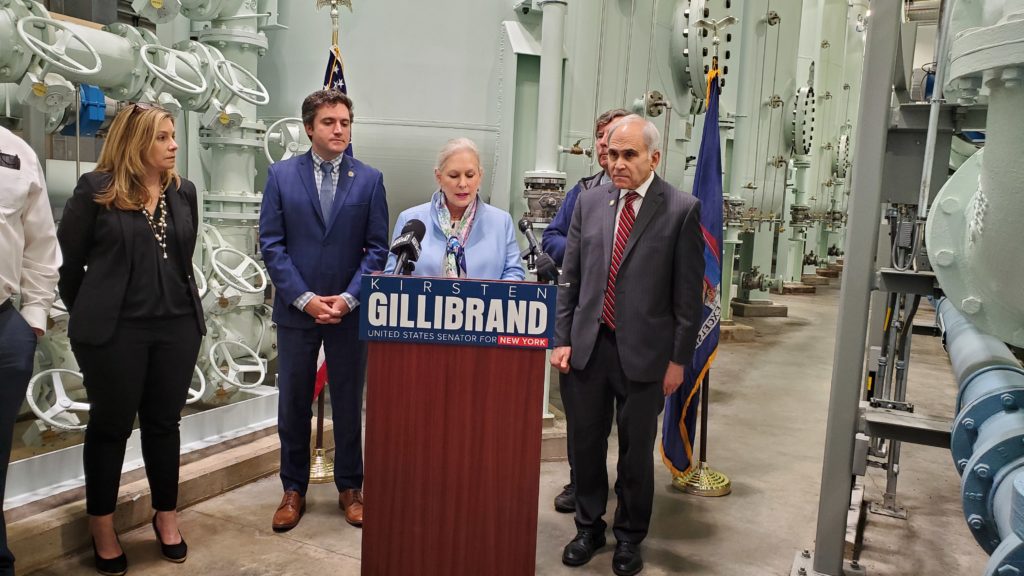NEWBURGH — U.S. Senator Kirsten Gillibrand (D-NY) and Representative Chris Pappas (D-NH) announced their plan to introduce the bicameral Clean Water Standards for PFAS 2.0 Act, which would further regulate per- and polyfluoroalkyl substances (PFAS), a widespread cancer-causing water pollutant.
The legislation, announced by Gillibrand on Friday in Newburgh, sets deadlines for the Environmental Protection Agency (EPA) to develop water quality criteria and limits on industrial PFAS discharges into water and to water treatment plants.
Gillibrand outlined how the Clean Water Standards for PFAS 2.0 Act would require EPA to develop water quality criteria for all measurable PFAS or classes of PFAS, and develop effluent limitations guidelines and standards for all measurable PFAS or classes of PFAS. This updated legislation sets deadlines for these criteria and limits within the next few years, in accordance with the EPA PFAS Roadmap.
“It is unacceptable that not just across New York State, but in every state across the country, communities have had their water supplies needlessly polluted by toxic PFAS chemicals,”said Senator Gillibrand.
“The dangers posed by forever chemicals such as PFAS is one of the most pressing environmental and public health issues facing us today,” said Congressman Chris Pappas. “Despite knowing about the dangers they’ve posed since at least 1998, the EPA has still failed to take meaningful action to keep these toxic, ‘forever chemicals’ out of our water.”
The bill includes nine priority industry categories to further expand on current EPA standards. These priority industry categories include Organic Chemicals, Plastics, and Synthetic Fibers (OCPSF); pulp, paper, and paperboard; textile mills; electroplating; metal finishing; leather tanning and finishing; paint formulating; electrical and electrical components; and plastics molding and forming.
The bill would also authorize $200 million per year in grants to assist Publicly Owned Treatment Works with program implementation, which would be appropriated through Fiscal Years 2022-2026.








